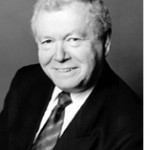By Rabbi Dow Marmur

JERUSALEM — The speeches that President Trump made during his 26-hour visit to Jerusalem and Bethlehem were sufficiently enigmatic to be open to all possible interpretations, especially if you concentrate on what he did not say, which was plenty – including no mention of moving the American embassy from Tel Aviv to Jerusalem, despite earlier indications.
But the Jewish settlers and their supporters were relieved that Trump never referred to the “two-state solution” and made no reference to the settlements as obstacles to peace. But it’s difficult to envisage that the Palestinians would accept that. Abu Mazen in his speech made it clear that the Palestinians expect a state of their own with East Jerusalem as its capital.
The Palestinian leaders may compromise about the right to return for those of their people and their descendants whom they regard as having been displaced by Israel. They may even accept that most of the settlements remain. But would they, could they, accept less?
The unifying factor in all that Trump said was Iran and his determination to make sure that it doesn’t get nuclear weapons. He said it in Jerusalem and he said in Riyadh. One reason for the already existing cooperation between Israel, Saudi Arabia and some other Muslim states is the bond that a common enemy creates. Yes, the Palestinians have been forgotten in the process, but that doesn’t mean that they’ll cave in to the fantasies of Israel’s right-wingers.
Though President Trump and Prime Minister Netanyahu spoke much about peace between Israel and the Palestinians, I don’t think that I was the only viewer/listener to be at a loss in trying to fathom how this would come about or at least what the next step could be. Optimists may wish to speculate that the unpublicized talks that Trump may have had with Netanyahu and Abu Mazen included an actual plan.
I’m am one of those who isn’t holding his breath. The visit seemed more like a feel-good performance that may have brought some relief to the pressures that the president is said to be subjected to in Washington. I remember a conference I attended in Jerusalem many years ago at which the late Abba Eban was given a standing ovation. “Thank you,” he said, “normally I’ve to go abroad for this kind of reception.” The same may be true of Trump; he has gone abroad for some adulation. He got plenty of it here with many standing ovations.
It’s not clear that he gets the same from his own policy makers. For example, the media are carrying statements by his Secretary of State that seem to resemble more the diplomatically cautious views that have characterized United States policies in recent years, not least in the Obama era. It’s reasonable to assume that it’s these views, and not Trump’s gushing “Zionist” rhetoric, that’ll determine the course of events.
And yet: to hear such warm words about Israel and its people from the ostensibly most powerful man in the world warms one’s Jewish heart. Though he’s said to have anti-Semites among his decision makers, after this visit it’s impossible to imagine that he harbors anti-Jewish sentiments. That alone may have earned him the standing ovations. But if he wants to go down in history as a peace maker, he’d have to make sure that his announced intentions will, indeed, lead to a lasting peace.
*
Rabbi Marmur is spiritual leader emeritus of Holy Blossom Temple in Toronto. Now a resident of Jerusalem, he may be contacted via dow.marmur@sdjewishworld.com